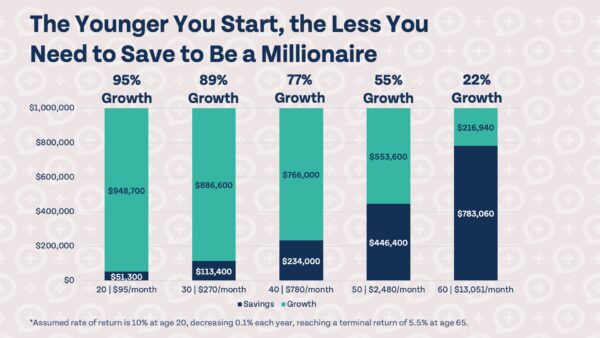Here are some tips to help you know if it’s the right time for you to hire a financial advisor.
The Money Guy Show believes that during the early stages of building your army of dollar bills, it’s important to focus on the behavior of being a diligent saver. Understanding the Financial Order of Operations (Available for free here) is a great way to prioritize and maximize how and where you are saving. Since building these good habits early on will be the main driver of your growth, there may not be a need for you to hire a financial advisor… yet.
As your financial life gets more complicated and your investable assets become more substantial ($500k is a simple rule-of-thumb), you may begin to have a need for more sophisticated management and planning. Here are some ideas to help you know if you are ready to take the next step.
- Impact. The gravity of your decisions is at a level where you don’t want to go it alone anymore. As your assets grow, the impact of every decision gets amplified and becomes more critical to your ultimate success. Making a mistake with $5,000 is much different than making a mistake with $500,000.
- Time. There isn’t enough time in the day to give your finances the attention they deserve. Many successful and intelligent people hire an advisor, not because they don’t have the ability or aptitude to handle it themselves, but because they simply don’t have the required amount of time. Typically, they are busy… busy being successful!
- Sophistication. As things get more complicated and your financial situation advances, opportunities may become available that aren’t practical or even possible for those in the early stages. These include tax-loss harvesting, asset location, a deeper granularity of investment diversification, retirement distribution planning, capital gain management and Charitable giving strategies.
OK, it sounds like I need an advisor, where do I start and how exactly will they help?
If you think you are ready to work with an advisor, it’s important to understand the difference between investment management and true financial planning. Financial planning is comprehensive and typically involves multiple areas including Estate, Insurance, Education, Retirement Planning AND Investment management. A financial planner will take a holistic approach and be able to provide advice and guidance for each of these areas in a way that maximizes how they all work together, as opposed to a piecemeal approach.
As you begin the process of finding an advisor, make sure to check out the 8 Questions To Ask Your Financial Advisor document available as a free resource at MoneyGuy.com.
Check out these videos for some basics on how to know when you are ready to hire an advisor.
Video: When Should You Hire a Financial Advisor?















